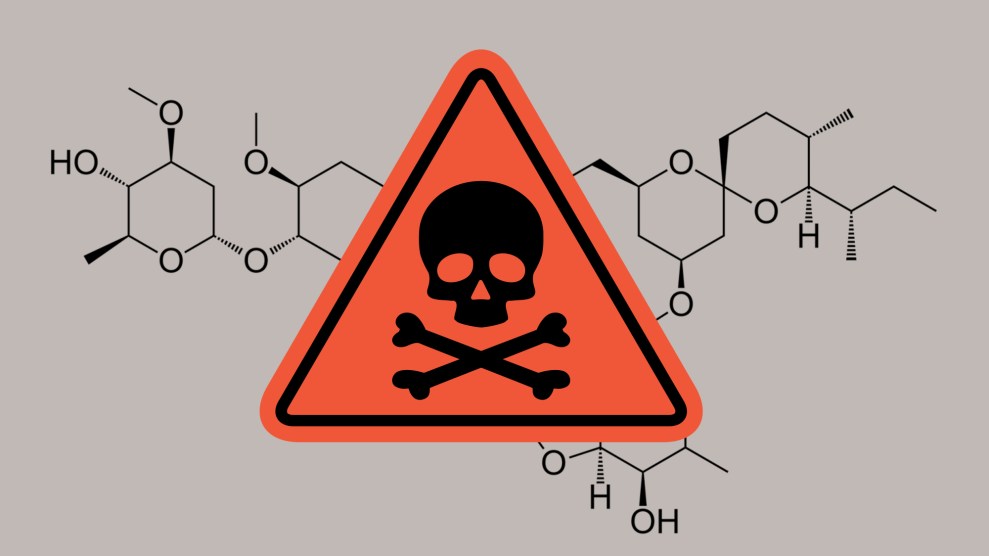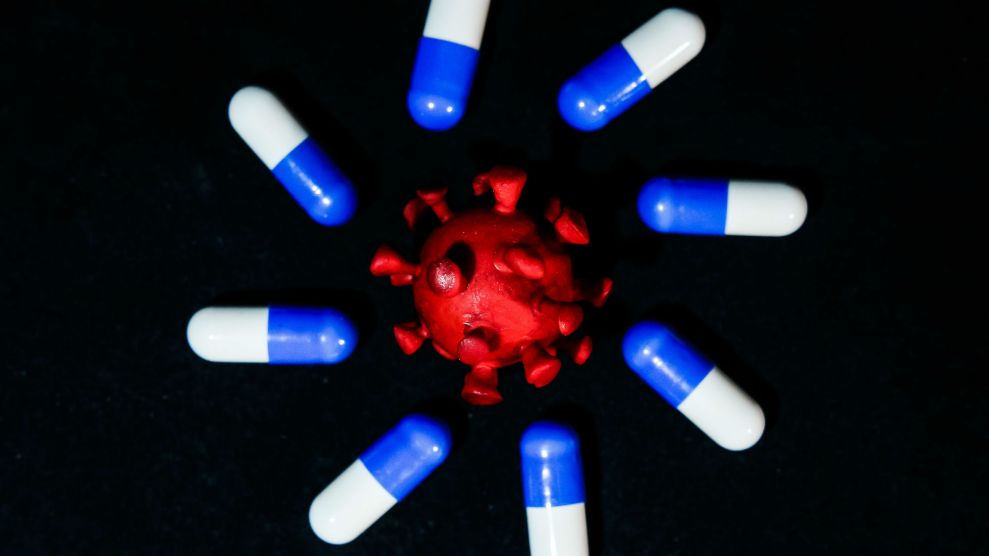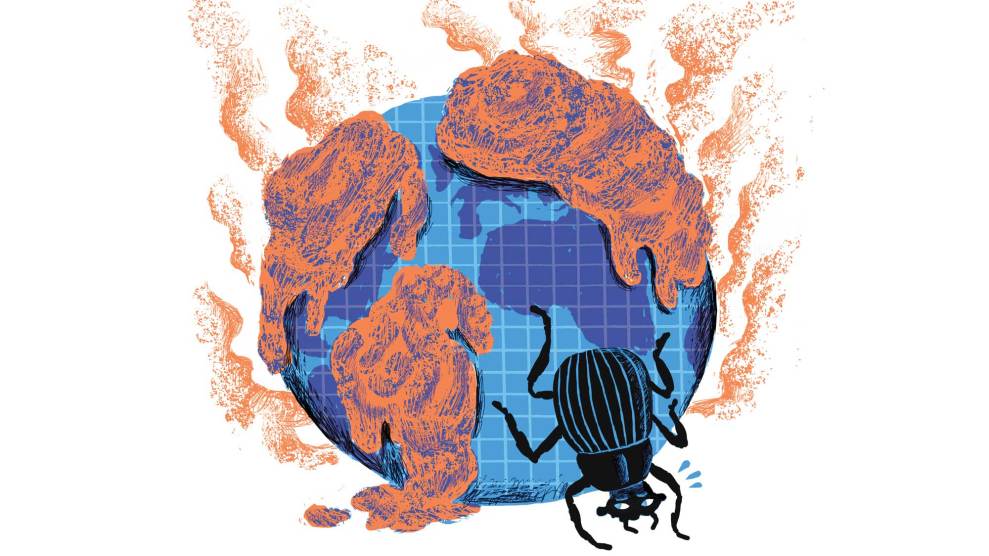
Mother Jones illustration; Peter Hermes Furian/Getty Images
Reports of poisonings have been pouring out of a handful of states hard-hit by the COVID surge, as desperate people attempt to self-medicate with a livestock de-wormer called Ivermectin.
The medicine is approved for human use by prescription, for certain other things, but the FDA is warning people against using it—the veterinary version especially—to try and treat or thwart COVID.
Texas Public Radio reports that ranch and feed stores are sold out of the drug, and the state poison control hotline has been burning up with people worried about the effects they are experiencing from taking it. “Nausea, vomiting, and abdominal pain,” the director of the Texas Poison Center told TPR. “However, you can have further problems, including mental status changes, coma, even seizures… I haven’t seen any deaths here in Texas, but these are things that are reported by the manufacturer with people who use large doses.”
The Mississippi Health Department put out an alert late last week warning people to avoid Ivermectin: “At least 70% of the recent calls [to the state poison control center] have been related to ingestion of livestock or animal formulations of ivermectin purchased at livestock supply centers. 85% of the callers had mild symptoms, but one individual was instructed to seek further evaluation due to the amount of ivermectin reportedly ingested.”
The statement also noted that “animal drugs are highly concentrated for large animals and can be highly toxic in humans. Some of the symptoms associated with ivermectin toxicity include rash, nausea, vomiting, abdominal pain, neurologic disorders, and potentially severe hepatitis requiring hospitalization.”
At least one person who took Ivermectin was hospitalized recently, according to the Mississippi Free Press.
You are not a horse. You are not a cow. Seriously, y'all. Stop it. https://t.co/TWb75xYEY4
— U.S. FDA (@US_FDA) August 21, 2021
On Thursday, The Oklahoman reported brisk sales of Ivermectin at ranch and feed stores across the state. Steve Cook, owner of the Cook Feed & Outdoor stores in central Oklahoma, told the paper he’s had difficulty meeting the high demand: “We’ve started selling out left and right… It tends to happen whenever a surge like this goes on.”
Similar scenarios are playing out in Alabama, where a CBS radio affiliate reports that calls to the state poison control center are on track to triple over the previous year. And in Florida, where the poison control center had just two Ivermectin calls in March, but 33 so far this month, reports the Tallahassee Democrat: “There’s a level of fear out there right now that is making people feel a little bit desperate about a lot of things,” one feed store owner told the paper. Ditto Georgia and Missouri.
With the exception of Florida, all of these states have vaccination rates below the national average, from 37 percent in Alabama and Mississippi to 47 percent in Texas. (Florida is at 52 percent, which is also the national average.)
Ivermectin, whose use as a COVID treatment has been championed by an outlier group of physicians and amplified by right-wing grifters and media outlets, has not been proven effective—certainly not to FDA standards. Zain Chagla, a Canadian infectious disease specialist who has examined the existing studies of Ivermectin called the evidence “very low grade.”
“I want it to work, but at the same time, this whole thing feels like déjà vu of the first two months of the pandemic when we weren’t decided about hydroxychloroquine,” he told medical news outlet MedPage Today. “We don’t want to come around a year later saying it didn’t help and it may have hurt.”















